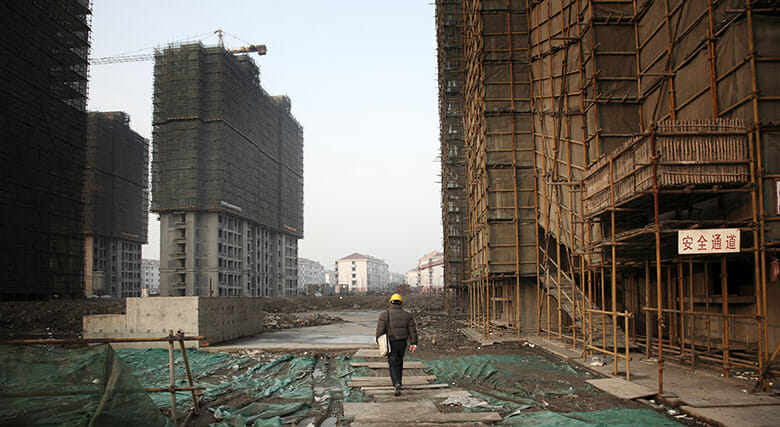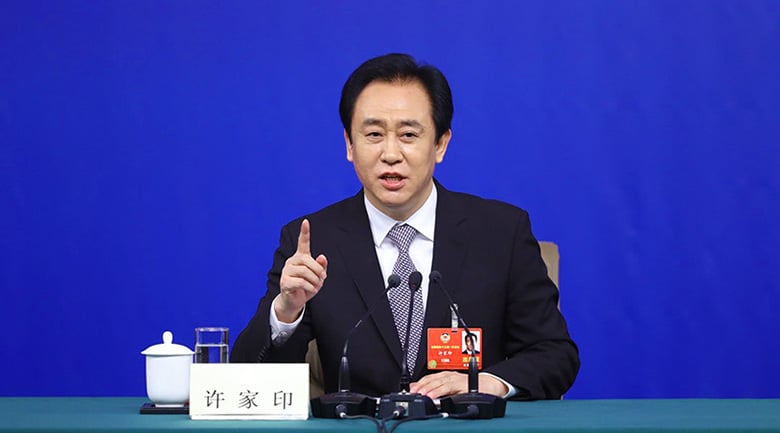
Incomplete projects might be China’s deadliest contagion (Credit: Getty Images)
Intentional mass mortgage default by homebuyers at a delayed Evergrande project in Jingde town of Jiangxi province late last month has proved contagious, with data from CRIC as of 13 July showing that buyers of 106 projects across 47 cities are refusing to service their mortgages.
The payment refusal underscores how China’s real estate crisis is now affecting the country’s middle class, posing bad debt risks for banks, hampering consumer confidence, and hurting developers’ sales recovery.
“The main reason for the payment refusal is a delay in home delivery. Many homebuyers have specified a deadline for project restart in their intentional default notification letters,” China Real Estate Information Corporation (CRIC) said in an article posted Thursday to its “Ding Zuyu’s Real Estate Talk” WeChat channel. Ding is chairman of CRIC patent E-House. The article added that, “Misuse of the presales proceeds is a main reason causing the project suspension and delivery delays.”
Viral Disobedience
Late last month, buyers of condos at the Evergrande Longting project in Jingde town sent a letter to the municipal government, the city’s housing and banking authorities and the mortgage-issuing banks vowing not to make loan payments unless the project restarts, with the message going viral over social media.

Projects by Xu Jiayin’s Evergrande occupied 33 spots on the list
Having sold 900 units since January 2021, the project is now on hold with construction only one-completed. However, in their letter, which was seen by Mingtiandi, the homebuyers contend that the presale proceeds have been misused by Evergrande’s Jiangxi office and the project team.
Homebuyers also blamed the banks for releasing the mortgage funds before the property transactions were officially registered and blamed the local government for ineffective regulation.
The movement sparked buyers of delayed projects across the country to follow suit. A list on the Twitter-like Weibo platform showing about 100 delayed projects for which homeowners refuse to make mortgage payments shows 33 developments owned by Evergrande, the world’s most indebted property developer.
Also prominent on the list are projects being built by other cash-strapped developers, including Sunac China Holdings, China Aoyuan, Kaisa Group, Yango Group, Fantasia Holdings, Shimao Group and Greenland Group.
The Henan provincial capital Zhengzhou, which has relaxed the restrictions over presale proceeds in a bid to ease developers’ liquidity pressure, has become an epicenter of the mortgage default storm, accounting for about one-fourth of the projects on the list. Projects in Hubei and Hunan provinces also rank high on the list.
As of the end of last year, about 10 percent of the homes sold in 2021 in terms of square metre were delayed in the 24 key cities monitored by CRIC. Among them, Zhengzhou, Chongqing, the Hubei provincial capital of Wuhan and the Hunan capital of Changsha face the highest delivery risks, each having over 20,000 homes delayed, according to CRIC.
New Policies Called For
“Regardless of whether the home buyers’ unilateral act of cutting off the mortgage payments can be justified on legal grounds, it will easily cause a follow-up effect in the near term judging by the panic and negative sentiment the incident has caused, and the damages that keep expanding,” said CRIC.
CRIC called for the government to step up support measures such as tax cuts and rent reduction, as well as to relax borrowing and presales rules to help Covid-stricken developers resume their projects and revive their business.
The article, however, was deleted by CRIC Thursday afternoon.
Now is “a critical time for social stability”, said Citigroup analysts led by Griffin Chan in a research note distributed on Wednesday, adding that “the forgoing of down payments may bring social instability”.
Chinese banks already grappling with challenges from liquidity stress among developers now also have to brace for homebuyer defaults.
Non-performing loans triggered by the wave of mortgage payment halts could reach as much as RMB 3.1 trillion, or about 8 percent of China’s outstanding mortgage balance, according to economist Hao Hong, who was previously chief strategist and head of research at Bank of Communications International in Hong Kong.
Leave a Reply